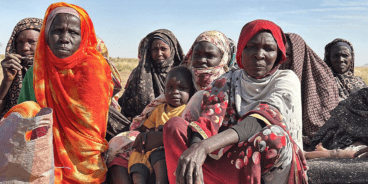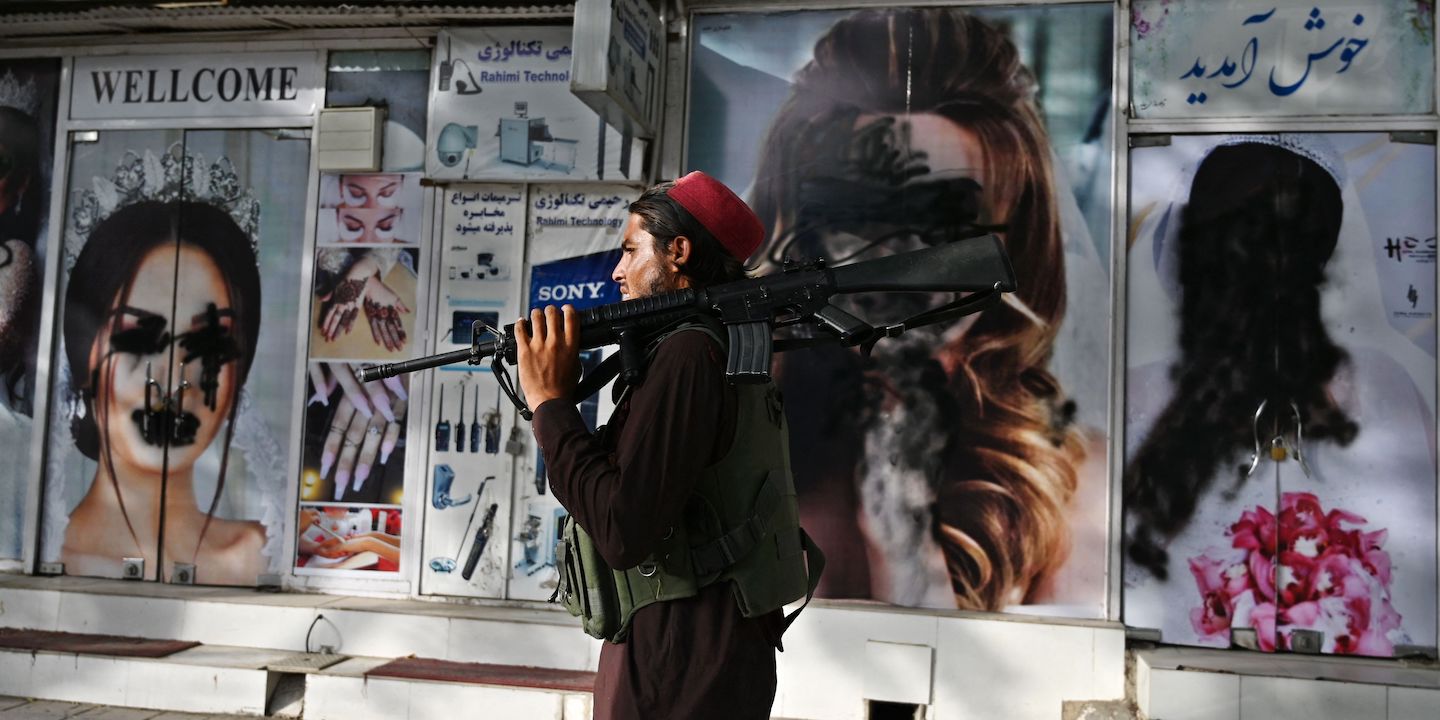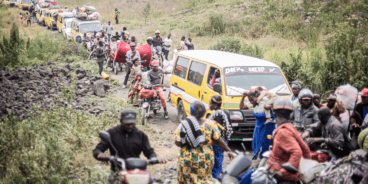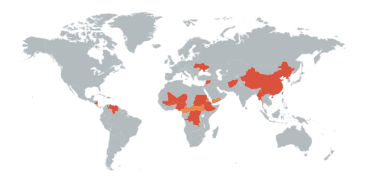

Open appeal to UN Member States to ensure the adoption of a resolution creating an investigative mechanism on Afghanistan at the 48th session of the UN Human Rights Council
We, the undersigned organisations, write to urge UN Member States to ensure the adoption of a robust resolution to establish a Fact-Finding Mission or similar independent investigative mechanism on Afghanistan as a matter of priority at the upcoming 48th regular session of the UN Human Rights Council (HRC).
We express our profound regret at the failure of the recent HRC special session on Afghanistan to deliver a credible response to the escalating human rights crisis gripping the country. The adopted resolution falls far short of the consistent calls of the Afghanistan Independent Human Rights Commission (AIHRC), the UN High Commissioner for Human Rights, Special Procedures and civil society organisations, and does not live up to the mandate of the HRC to effectively address situations of violations of human rights, including gross and systematic violations.
A Fact-Finding Mission, or similar independent investigative mechanism, with a gender-responsive and multi-year mandate and resources to monitor and regularly report on, and to collect evidence of, human rights violations and abuses committed across the country by all parties is a critical component of the broader international response urgently needed to address the escalating human rights and humanitarian crisis in Afghanistan. Such a mechanism is crucial to ensure UN member states are fully informed of the situation on the ground as they take important decisions on how to respond to the crisis, how to help protect the rights and lives of the people of Afghanistan, and how to prevent further crimes. It is crucial to support the brave activists and human rights defenders, particularly women human rights defenders, who have continued their work at significant personal risk and have requested support and solidarity from the international community. It is also crucial as a means of taking one small step to addressing the accountability gap that fuels grave violations and abuses across the country, and to complement and support international and national work on accountability for crimes under international law.
The urgent need for such a mechanism could not have been made clearer throughout the negotiations, and at the opening of the special session. The AIHRC, the High Commissioner for Human Rights, the Special Procedures, the Ambassador of Afghanistan to the United Nations in Geneva, and a broad constellation of national, regional and international civil society organisations, have all made this call clearly and consistently. The High Commissioner for Human Rights stressed that while her Office was ready and willing to update the HRC regularly on the situation, it was critical for the HRC to take “bold and vigorous action, commensurate with the gravity of this crisis, by establishing a dedicated mechanism to closely monitor the evolving human rights situation in Afghanistan, including – in particular – the Taliban’s implementation of its promises, with a focus on prevention.” To ignore these consistent appeals, and sit idly by and wait for further crimes to occur to take meaningful action, is an abdication of responsibility by the HRC. The people of Afghanistan are entitled to much better than this.
At the special session, UN Special Procedures recalled that the last 18 months “have been the deadliest civilian casualties recorded in Afghanistan in late history” and also reminded the Council of the fifth report of the UN Secretary General on Children and Armed Conflict in Afghanistan (S/2021/662 16 July 2021) documenting “that child casualties for the first half of 2021 constituted the highest number of children killed and maimed for this period ever recorded by the UN in Afghanistan, a situation compounded in the last few weeks.”
At this crucial moment for the people of Afghanistan, we are convinced that an independent investigative mechanism is the only credible means to address the human rights crisis in the country, advance accountability and deter further abuses. Although some states proposed the creation of a Special Rapporteur as a compromise during the special session, this would not be an adequate or appropriate response to a crisis of this magnitude for a number of reasons, including the lack of resources, limited capacity and correspondingly narrower scope of such a mandate. We note that the special session resolution itself “stresses the need for transparent and prompt investigation into reports of all violations and abuses of human rights and violations of international humanitarian law, committed by all parties to the conflict, and to hold those responsible to account.” Clearly, the only credible way to give effect to this commitment is to create such a “transparent and prompt investigation.”
We urge all UN Member States, to take urgent action to correct the HRC’s course, by ensuring a robust independent investigative mechanism is put in place when it meets for its 48th regular session in September. As noted by the Chairperson of the AIHRC in her opening address to the HRC, “Afghan activists on the ground, my colleagues on the ground, who face direct threats to their lives and the lives of their families, demand better, while they have everything to lose by putting this ask forward […] Many I speak to in Afghanistan already fear that they may not have a tomorrow. In our worst moment, we call on you to do better.”
LIST OF SIGNATORIES:
- Afghanistan Independent Human Rights Commission
- Amnesty International
- ARTICLE 19
- Asian Forum for Human Rights and Development (FORUM-ASIA)
- Asylum Seeker Resource Centre (ASRC)
- Australian Centre for International Justice
- Australian Human Rights Institute
- AWID (Association for Women’s Rights in Development)
- Cairo Institute For Human Rights Studies
- Center for Justice and International Law (CEJIL)
- Centro de Documentación en Derechos Humanos “Segundo Montes Mozo S.J.” (CSMM)
- CIVICUS: World Alliance for Citizen Participation
- Comisión Mexicana de Defensa y Promocion de Derechos Humanos (CMDPDH)
- Committee to Protect Journalists
- Commonwealth Human Rights Initiative (CHRI)
- DefendDefenders (East and Horn of Africa Human Rights Defenders Project)
- DEMAS – Association for Democracy Assistance and Human Rights
- Egyptian Initiative for Personal Rights (EIPR)
- FOKUS Forum for women and development
- Forum Menschenrechte
- Free Press Unlimited
- FRI – Foreningen for kjønns- og seksualitetsmangfold
- Front Line Defenders
- Global Centre for the Responsibility to Protect
- HelpAge International
- Human Rights Now
- Human Rights Watch
- Humanists International
- International Bar Association’s Human Rights Institute
- International Center for Transitional Justice (ICTJ)
- International Commission of Jurists
- International Federation for Human Rights (FIDH)
- International Federation on Ageing
- International Fellowship of Reconciliation (IFOR)
- International Movement Against All Forms of Discrimination and Racism (IMADR)
- International Service for Human Rights
- Jacob Blaustein Institute for the Advancement of Human Rights
- La Strada International
- Medical Association for Prevention of War (Australia)
- Minority Rights Group International
- No Peace Without Justice
- Norwegian Helsinki Committee
- Norwegian Humanist Association
- Rafto Foundation for Human Rights
- Right Livelihood
- Scholars at Risk
- The International Rehabilitation Council for Torture Victims (IRCT)
- The Norwegian Human Rights Fund
- Tokyo University of Foreign Studies
- VOICE Australia
- WO=MEN Dutch Gender Platform
- Women’s International League for Peace and Freedom (WILPF)
- Women’s Refugee Commission
- World Organisation Against Torture (OMCT)
Related Content


Atrocity Alert No. 425: Democratic Republic of the Congo, Afghanistan and Holocaust Remembrance Day
